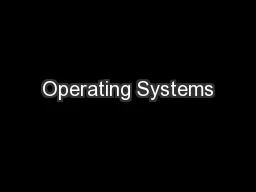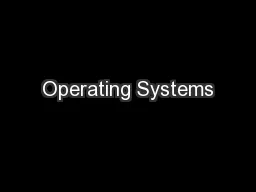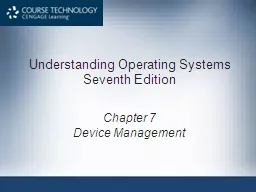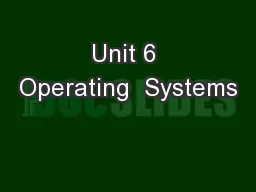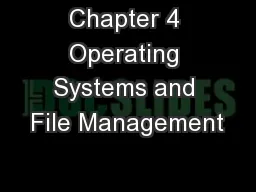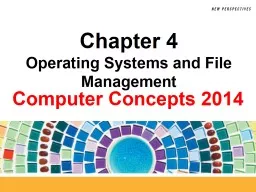PPT-Operating Systems: Principles and Practice
Author : delcy | Published Date : 2023-07-22
Tom Anderson How This Course Fits in the UW CSE Curriculum CSE 333 Systems Programming Project experience in CC How to use the operating system interface CSE 451
Presentation Embed Code
Download Presentation
Download Presentation The PPT/PDF document "Operating Systems: Principles and Pract..." is the property of its rightful owner. Permission is granted to download and print the materials on this website for personal, non-commercial use only, and to display it on your personal computer provided you do not modify the materials and that you retain all copyright notices contained in the materials. By downloading content from our website, you accept the terms of this agreement.
Operating Systems: Principles and Practice: Transcript
Download Rules Of Document
"Operating Systems: Principles and Practice"The content belongs to its owner. You may download and print it for personal use, without modification, and keep all copyright notices. By downloading, you agree to these terms.
Related Documents


